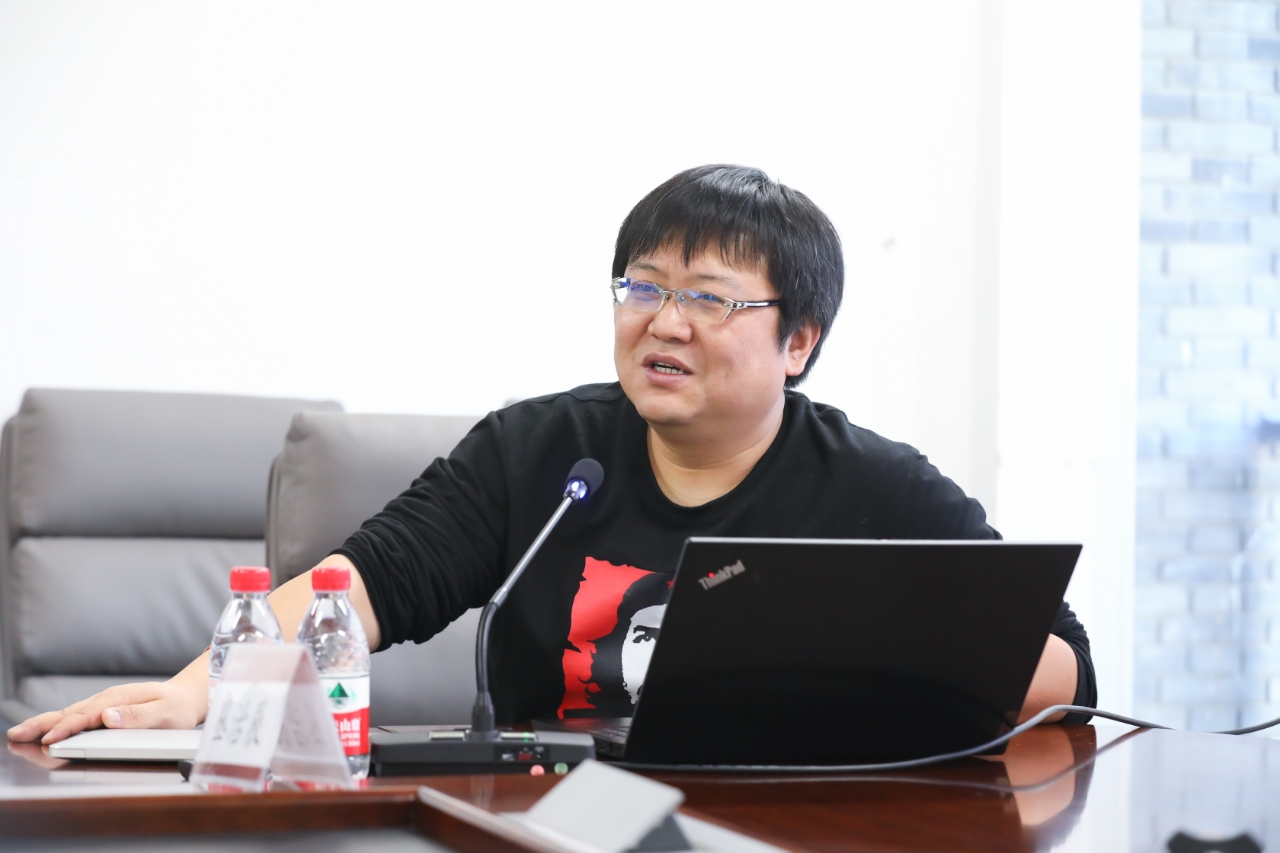How writing reflects reality: A salon on integrated media
Dec 08, 2024
Peking University, December 8, 2024: An academic salon on integrated media was held at the School of Journalism and Communication under the theme "What to Write and How to Write: How Writing Confronts Reality" recently. Associate Professor Cong Zhichen from the School of Chinese Languages and Literature shared his insights on how to craft and write great profile stories to an audience of teachers and student journalists.
Using the draft of a profile story as a case study, Prof. Cong started off by laying out the prerequisites of a good feature story. He believes the key considerations for journalists include what to write, what readers want to read, the flow between different themes, as well as the need for details rather than generalization.
Regarding the readability of a profile story, journalists should seek balance between presenting a robust story and offering deeper personal insights to the interviewee. For instance, journalists can include some descriptions of the interview process to capture the interviewee's charm rather than direct sketches. Prof. Cong mentioned that students could refer to the method of interviewing in "The Paris Review," which is to understand the interviewee beforehand, to resonate with the interviewee, therefore digging into hidden details and eliciting new and spontaneous responses.
Simple and straightforward writing is often more impactful than flowery descriptors, Prof. Cong suggested. The use of “line drawing” (白描) in Chinese literature, for example, represents a minimalistic writing approach that leaves readers to reflect on what is not presented , which may lead to a deeper understanding of the characters.
On “what to write,” Prof. Cong urged journalists to reflect on three relationships—of self-discovery and task completion, of self and the world, and of routine writing and creative writing. Writing needs to focus on being reader-oriented, thus generalized narratives can be omitted. Journalists should avoid the excessive use of quotes and words, and instead deliberate over the necessity of each word.
At the end of the salon, Prof. Cong and the students exchanged views on manuscript writing. A former editor for Phoenix TV, Prof. Cong was able to share his unique expertise in both media and contemporary Chinese literature with the students.
“There is great meaning hidden in routine life, which should be explored more by those working in the media.” Prof. Cong encouraged student journalists to pay more attention to phenomena and campus life, to display campus spirit of the university in every article published, while not losing their own inspiration.
Written by: Leow Kai Lim
Edited by: Wu Jiayun
